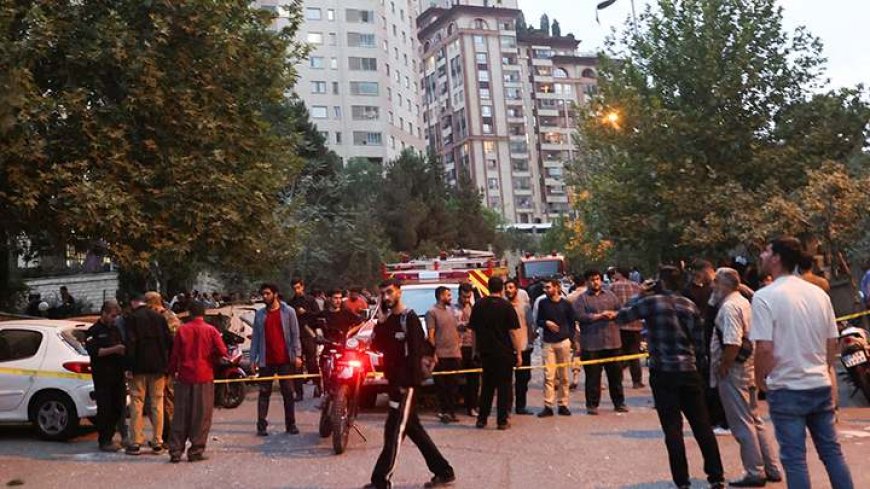Indian Embassy Urges Citizens to Avoid Non-Essential Travel to Iran Amid Rising Tensions
The Indian Embassy in Tehran has issued a strong advisory asking citizens to avoid non-essential travel to Iran and recommending evacuation for those currently residing in the country due to escalating regional tensions.

Indian Embassy Issues Travel Advisory for Iran Amid Worsening Security Conditions
New Delhi/Tehran | July 16, 2025 — The Indian Embassy in Tehran issued a public advisory on July 16, urging Indian nationals to avoid all non-essential travel to Iran and recommending that Indian residents already in the country consider leaving through available commercial options. The urgent notification was made against the backdrop of mounting geopolitical tensions in the Middle East, raising alarms over the safety of foreign nationals, including Indians.
The Advisory: Key Details and Instructions
In a statement released on official embassy platforms and the Ministry of External Affairs (MEA) website, the advisory made several key points:
-
Avoid Non-Essential Travel: Indians who had planned trips to Iran for business, religious pilgrimage, or tourism were strongly advised to defer their travel.
-
Evacuation Suggested: Those currently residing in Iran were “strongly encouraged to carefully consider the evolving security situation and evacuate while commercial flight options remain available.”
-
Stay Informed and Registered: The embassy reiterated the importance of remaining connected through official communication channels and advised citizens to register their presence via the Embassy's online portal or directly with consular offices.
“The security situation in Iran and the region remains fluid and may deteriorate with little notice. Indian citizens are advised to remain vigilant, avoid public gatherings, and monitor updates from reliable news sources and official channels,” the advisory read.
Context: Why This Advisory Now?
This is not the first time India has issued a travel advisory for Iran, but the current one stands out due to the timing and urgency.
1. Rising Regional Instability
Iran is currently at the center of escalating tensions involving regional rivals and Western powers. Ongoing confrontations in the Red Sea, Strait of Hormuz, and areas near the Iran-Iraq border have raised fears of wider conflict. Reports of drone strikes, retaliatory air raids, and proxy group skirmishes are becoming increasingly frequent.
2. Risk to Foreign Nationals
Several Western nations, including the UK, Canada, and Australia, have already elevated their travel advisories in the past two weeks. India’s move aligns with a growing consensus that the risk to foreign nationals in Iran is increasing.
3. Security of Indian Citizens
There are an estimated 3,000 to 4,000 Indian nationals living and working in Iran, including professionals, pilgrims visiting religious sites in Qom and Mashhad, and students. Ensuring their safety is a top priority for the Indian government.
Historical Relations and the Diplomatic Tightrope
India and Iran have historically maintained strong bilateral ties, particularly in energy trade, infrastructure cooperation (e.g., Chabahar Port), and cultural exchanges. However, India has always treaded carefully when regional conflicts erupt, balancing its diplomatic interests with citizen safety.
This advisory is not a political statement but a pragmatic safety measure. Indian authorities are reportedly in touch with their Iranian counterparts to ensure:
-
Safe passage for Indian citizens
-
Functioning of commercial air routes
-
Diplomatic access to detained or distressed individuals (if any)
What's Next: Government Response and Contingency Measures
1. Monitoring Cell Activated
The MEA has activated a 24/7 monitoring cell to respond to queries from concerned families and individuals. Helpline numbers have been shared across embassy social media handles.
2. Evacuation Under Consideration
While there are no current plans for a government-facilitated evacuation similar to “Operation Ganga” (Ukraine) or “Operation Kaveri” (Sudan), officials have indicated that such measures could be launched if commercial options become unviable.
3. Coordination with Airlines
India is also reportedly working with Air India and Iranian carriers to assess passenger volumes and ensure adequate flight availability for returnees.
What Should Indian Nationals in Iran Do?
The Indian Embassy’s advisory is a clear call to action, not a mere warning. Those in Iran should:
-
Refrain from unnecessary travel within the country
-
Avoid large public gatherings or political demonstrations
-
Maintain close contact with the Indian Embassy or consular outposts
-
Keep passports and travel documents in order
-
Track flight availability and book early, as demand may spike
In case of emergencies, Indian nationals can reach out to:
-
Embassy Emergency Line: +98-XXXXXXXXXX
-
Email: cons.tehran@mea.gov.in
Broader Implications for Indian Foreign Policy
The advisory underscores the dynamic and sensitive nature of India’s foreign policy in the Middle East. As India grows its global economic footprint, protecting its diaspora becomes increasingly complex, particularly in volatile regions.
With oil prices rising and shipping routes under threat, this situation also has economic ramifications. Analysts suggest that India may temporarily reduce its crude imports from the region, diversify sources, or draw down from strategic reserves if tensions persist.
Reactions from the Indian Community and Experts
Public Sentiment
Indian residents in Tehran have expressed mixed emotions:
“It’s reassuring that the embassy is proactive, but the uncertainty is nerve-wracking,” said Akhil Sharma, an engineer based in Tehran.
Expert Views
Security analysts have applauded the advisory as a timely move:
“Such advisories play a vital role in preempting risk and are consistent with international standards of consular responsibility,” said Dr. Neha Kapoor, a foreign affairs specialist at Delhi University.
Conclusion: A Critical Moment for Indian Diplomacy and Diaspora Safety
The July 16 advisory by the Indian Embassy in Tehran marks a critical juncture in India’s engagement with West Asia. While the situation on the ground in Iran may still be evolving, the message from New Delhi is clear—citizen safety comes first.
Whether or not the conflict escalates further, the proactive stance taken by Indian authorities may prove vital in ensuring the safe return of citizens, and in maintaining India's image as a responsible global actor.


















































